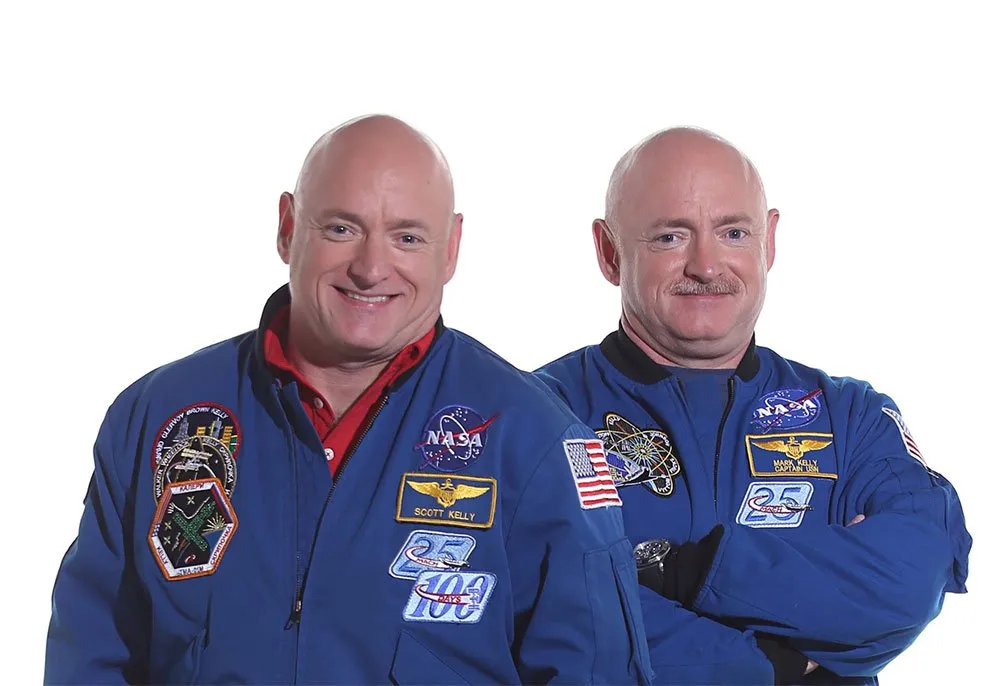
Source
The NASA team examined the bodies of two identical twins, while one was in Space and one on Earth , to identify the changes that space missions can cause.
They did this experiment because NASA is preparing flights to Mars with an approximate duration of three years, so it is necessary to find out the probability of taking the astronauts without affecting their health.
- The study
For the research, NASA was supported by astronauts Scott and Mark Kelly, twin brothers, who underwent a series of studies to collect information about their physical and psychological health.
Scott spent almost a year on the International Space Station, while his brother remained on Earth. The results showed some genetic differences in Scott's body , after his stay in space. Some of them disappeared a few hours after landing and the psychological part did not change.
- A twist in the genetic makeup
Telomeres are the ends of chromosomes and tend to shorten as a person ages, but in the case of Scott it took longer to shrink . During his stay in Space, his reduction was much smaller than Mark's. However, it took a couple of days for the telomeres to be reduced again.
The researchers found that 7% of Scott's genes underwent changes. These can impact in the long term the repair of the DNA, the immune system and increase the possibility of developing hypoxia-a deficiency of oxygen in the tissues-, as well as hypercapnia -excess of carbon dioxide in the blood-. 93% of the remaining genes returned to normal.
Although the differences between both bodies were not significant, the study showed that astronauts in space flights have nutrient changes and experience higher levels of stress due to lack of oxygen.
The purpose of the research was to determine the psychological and physiological changes to which astronauts are exposed by being long periods in space to understand and improve the conditions of space missions.